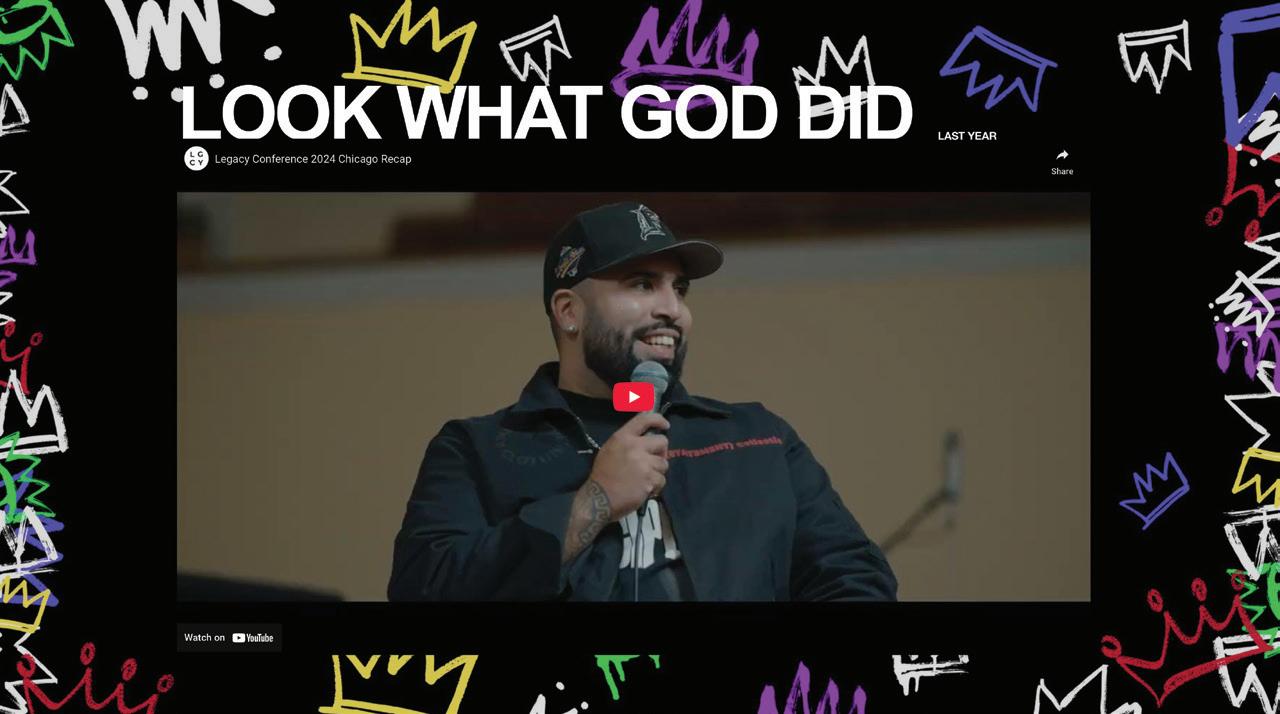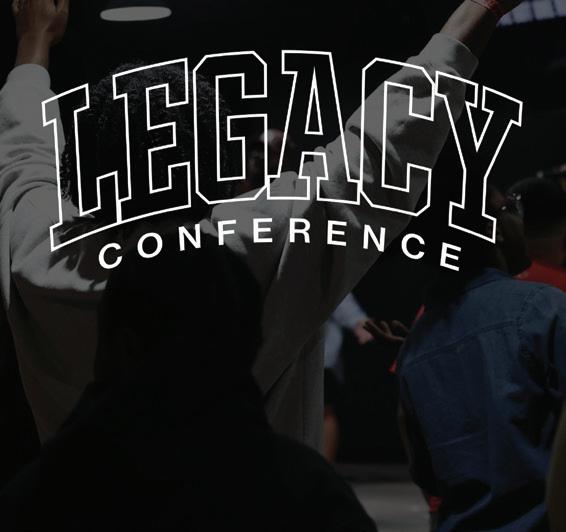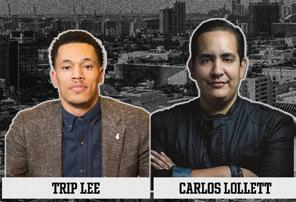Joy & Balance
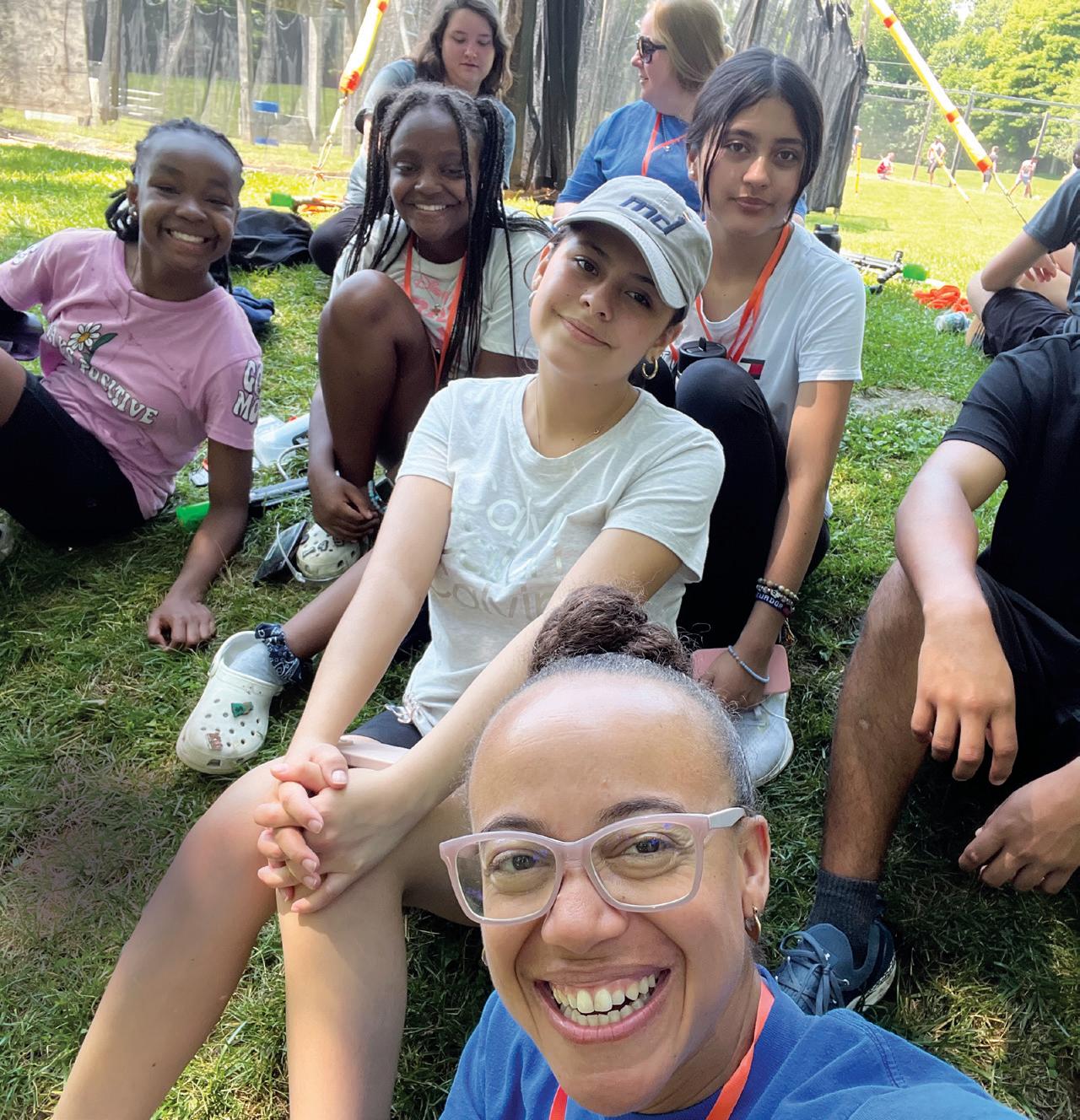
SPECIAL
Brian Dye and Legacy Disciple seeking hope in the hood


FEATURE
Ebonie Davis fought hard for bounderies, but God’s grace prevailed
BREAKTHROUGH
Fabiola Radillo is leveraging every lesson from a trusted process
FROM THE DIRECTORS
A NEW DVULI
Rhythm
As collaborative leaders, we (Ron, Gerald, and Shannon) love that we can be on the same page while simultaneously playing our own parts—in the right key, of course!
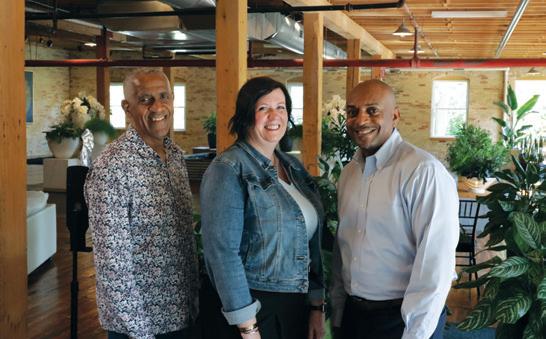
A new DVULI rhythm will be released in 2025, and we couldn’t be more excited to share what’s been orchestrated with our alumni, partners, and friends.
Formerly a 15-month training, DVULI will now roll out as an 18-month intensive consisting of three leadership tracks:
TRACK ONE: PERSONAL LEADERSHIP
(two local workshops and the first national conference)
TRACK TWO: MINISTRY LEADERSHIP
(three local workshops and one virtual workshop)
TRACK THREE: COMMUNITY LEADERSHIP
(two local workshops, one virtual workshop, and the second national conference)
SAME SONG, NEW ARRANGEMENT, EXTENDED MIX
The Breakthrough Plan process has been divided into two sections.
• Personal Breakthrough is written first and presented in its local workshop during Track One.
• Ministry Breakthrough is written second and presented in its local workshop during Track Two.
Graduation is now a combined event where all five city cohorts receive certifications together.
• One national graduation will be conducted at the second national conference in Orlando, Florida, as the 18-month intensive culminates.
• The five city cohorts will host a local reception where family, mentors, alumni, and community leaders can celebrate their achievement.
• The “Class of Year” will officially be the year participants graduate from DVULI, starting in 2025.
The alumni part of the new mix has a couple fresh sounds as well.
• An annual feedback survey will be conducted to collect data on how to improve our service to alumni.
• Communication with alumni will improve with the SMS text opt-in.
While we may not make the Billboard charts or win a Grammy, DVULI hopes to always be on the charts and hearts of our beloved, hard-working urban youth leaders across the country! You are always on ours!
Gerald Bell (Kansas City 2003), Editor gerald.bell
Contact DVULI: 200 Monroe Ave. NW | Grand Rapids, MI 49503 | 616-643-4848 | staff@dvuli.org
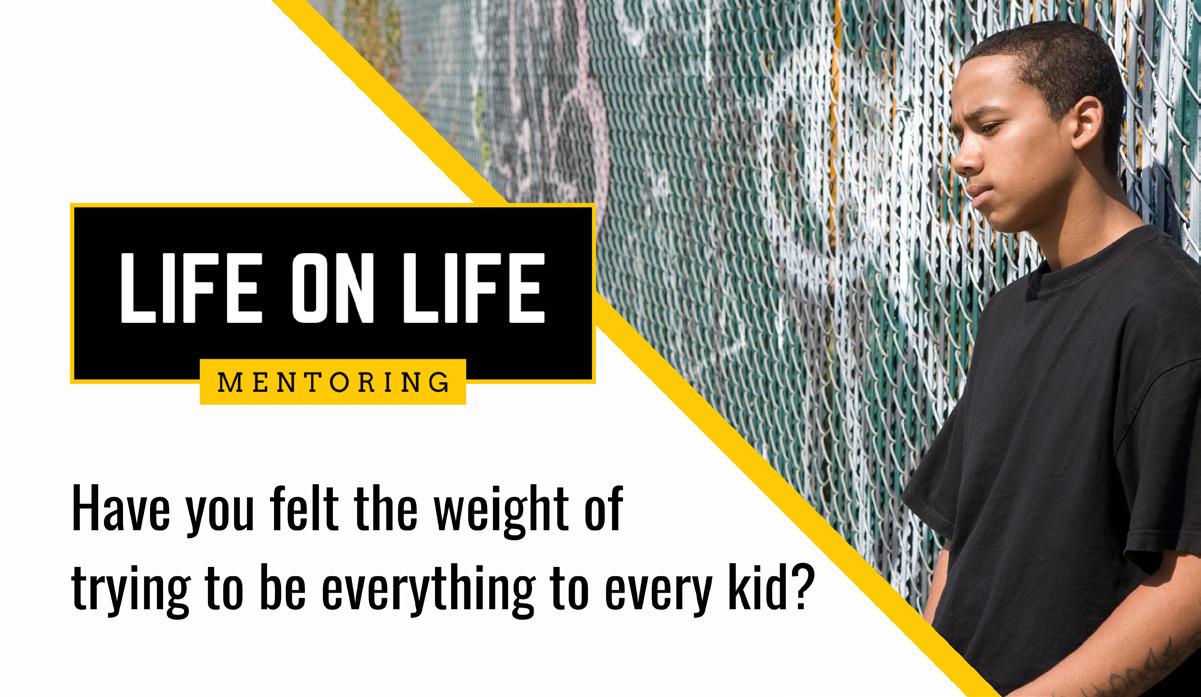
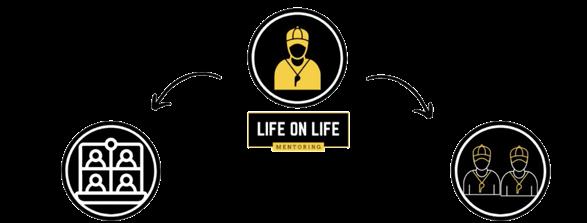



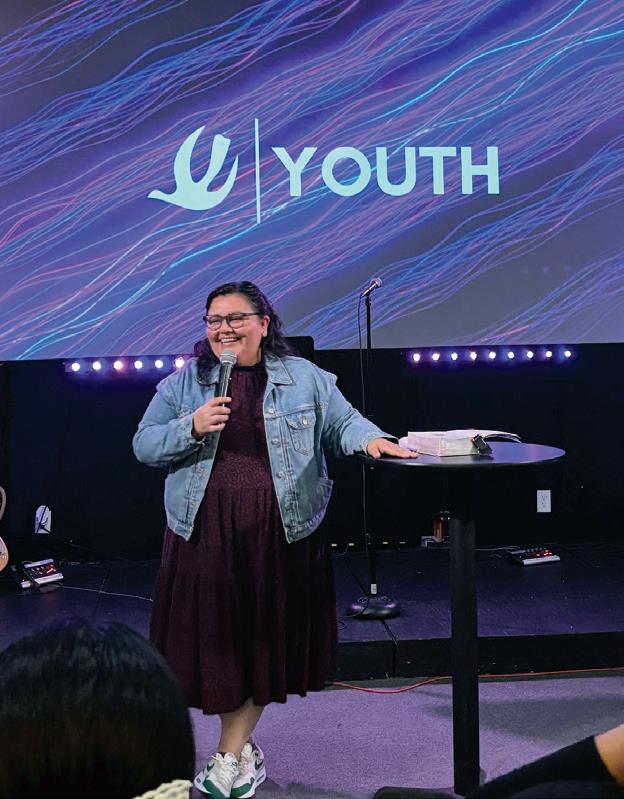
Fabiola Radillo
(SAN DIEGO 2023)
By La Tasha Langerston (St. Louis 2019) Contributor
Fabiola Radillo (San Diego 2023) found herself in the same shoes as many youth leaders who have faced stagnation and fear. “Fear had been affecting me, my ministry, and my capacity to change,” admitted Fabiola, who is affectionately called Faby. “It would stop me from moving.” Faby’s fear was more than a mere obstacle—it was a giant blocking her from receiving the transformation God wanted for her.
Faby battled a fear of making mistakes and was also confronted with the overwhelming sense of being lost. This paralyzing predicament prevented her from stepping into her full potential.
“I was allowing fear of the unknown to stop me in ministry. Feeling lost and not knowing what came next made me complacent,” she gathered. “I knew I needed to move forward, but without guidance, I was stuck.”
“I DIDN’T UNDERSTAND THE INTENTION BEHIND THOSE POWERFUL WORDS. LITTLE DID I KNOW THAT IT WAS ABOUT TO COMPLETELY REVOLUTIONIZE MY LIFE.”
Participating in the DeVos Urban Leadership Initiative (DVULI) helped Faby realize she was tangled in a web of never-ending tasks. Although her work was meaningful, it had become a monotonous routine that stifled her zeal.
“I was giving it my all but without managing my time properly,” she reflected. “I was losing my true self in the process.”
She would often hear the DVULI facilitators say, “Trust the process.” Initially, those words frustrated Faby. She desperately needed an immediate answer. “I didn’t understand the intention behind those powerful words. Little did I know that it was about to completely revolutionize my life,” explained Faby.
Before DVULI, Faby believed that being constantly busy was the same as being effective. “I wasn’t prioritizing excellence,” she admitted. “I focused on the small things that went wrong instead of looking at the bigger picture of what God was calling me to.” Adding insult to injury, she often exchanged well-being and self-care for being overcommitted.
Faby sensed a shift in her thinking as she trusted the process. The true meaning of leadership unfolded for her, revealing that it includes self-care, setting boundaries, and prioritizing what matters most.
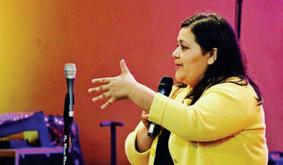
One initial factor Faby realized through DVULI was the importance of balance and her lack of it. Her sister confirmed this by saying, “Faby, we like that you are out there saving the youth and helping in church, but what about your nieces and nephews who are growing up and you are not there to help them? They need you, too.” Faby reflected on what her sister had said. “I had to balance ministry and family.”
Faby realized that effective leadership was about being intentional and having balance. She became better equipped to lead with more clarity and focus, ensuring her values were reflected in her ministry for lasting impact.
Another pivotal point for Faby was discovering that accountability was a powerful force not to be underestimated. The support of her cohort gave her the courage to face her fears head-on. “I was afraid to step into my full potential,” she reasoned. “I let others take the lead because I was scared of failing.”
Her mentor and cohort helped her embrace vulnerability while showing her that leadership was not about perfection but pursuing growth. She was challenged and encouraged to hold herself accountable and take ownership of her leadership.
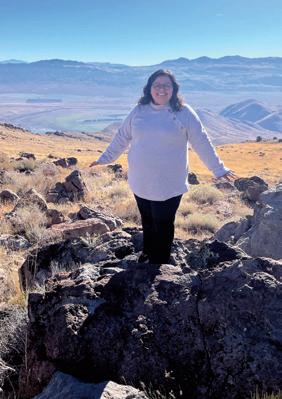
Upon graduating from DVULI, Faby met with her mentor to review her progress. “I was able to see my growth from when I started [the training], and I was in shock at how much I had accomplished.” It was through accountability that Faby broke free from the fears that had kept her bound and began embracing her role as a leader.
Faby’s third takeaway was the concept of leverage. Before DVULI, she thought she had to do everything herself. She carried the weight of the ministry alone at the expense of her well-being. She soon concluded that authentic leadership involves leveraging the strengths of others and the resources God provided. “Ministry is about collaboration,” said Faby. “It’s about trusting God to multiply the efforts of many.”
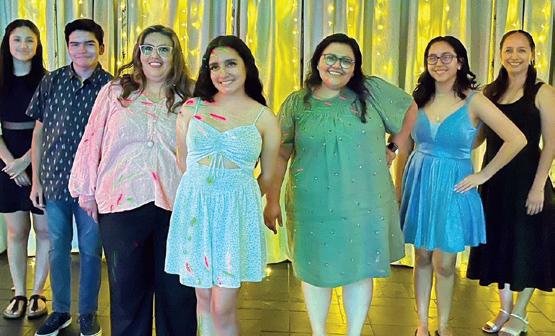
SHE SOON CONCLUDED THAT AUTHENTIC LEADERSHIP INVOLVES LEVERAGING THE STRENGTHS OF OTHERS AND THE RESOURCES GOD PROVIDED. “MINISTRY IS ABOUT COLLABORATION. IT’S ABOUT TRUSTING GOD TO MULTIPLY THE EFFORTS OF MANY.”
By learning to delegate and trust others, she could accomplish far more than working in isolation. This shift in mindset allowed Faby to focus on what mattered and freed her to grow personally and professionally.
To watch Bob Lupton’s “Shared Vision,” aka the “Glencastle Video” from NC2, SCAN THE QR CODE.
Faby’s journey was about much more than simply overcoming fear—it was about learning to trust God’s timing and how He works in His way. Once she began applying the lessons of balance, accountability, and leveraging her resources, it was clear those values were transforming her ministry and every aspect of her life in compelling ways.
Now, Faby stands tall as an overcomer of fear. With a revived sense of purpose, she rises to her challenges. “The process unfolds in its own time,” she said, reflecting on how the DVULI program has equipped her to thrive in her work and personal life. “I didn’t need to have everything figured out right away.” Faby continued, “It was about leaning into God’s timing and trusting He knows what’s best.”
La Tasha Langerston (St. Louis 2019) is a program director for Urban Born, an author, life coach, and freelance writer.
By Ebonie Davis (Washington DC 2022)
Balance & Grace
Ididn’t realize how close I was to burning out—until my body forced me to.
When I began the DeVos Urban Leadership Initiative, I had served as Youth Pastor at my church for nearly 15 years. Though my position was technically part-time, I routinely doubled my hours and was available 24/7 for youth who needed me.
SO, I KEPT SAYING “YES” UNTIL THE YESES NEARLY BURIED ME.

Ministry outside the church walls was flourishing, too. Invitations poured in: research work, speaking engagements, training sessions, and writing opportunities. Each one felt like a gift—evidence of God’s favor and grace. I feared that if I said “no” or labeled these as “official roles” instead of unexpected blessings, it would somehow disqualify me from receiving more. So, I kept saying “yes” until the yeses nearly buried me.
Ironically, I had recently released a book co-authored with my mentor, Dave Rahn (Indianapolis 2009), that advocated for faithful habits to deepen our relationship with Jesus and model authentic faith for the teens we serve. Practicing Sabbath rest was among the faithful habits. This was a personal journey for us, and I managed to develop a rhythm, albeit naïve to the fact that weekly rest didn’t always equate to balance and vice versa.
Family, friends, mentors, and my new DVULI cohort peers noted my unsustainable pace and urged me to slow down, but I couldn’t see a way forward. At DVULI’s first national conference of the year, everything came to a head. I’d been ignoring health issues, but that day, the pain was too sharp to push through. DVULI staff took me to the nearest urgent care, where doctors suspected stress was part of the culprit. They insisted I see a specialist as soon as I got home. It was a wake-up call. I lay in the urgent care bed reflecting on the part of the conference I’d gotten to attend that day: balance. Pushing through was no longer an option. I needed to change—immediately!
Thankfully, we’d been equipped with time management tools, based on Stephen Covey’s principles. We were encouraged to list our roles, along with intentional goals for each one. I was stunned by how many lines I needed: youth pastor, researcher, writer, speaker, and trainer. But it didn’t stop there; I was also a wife, mother, sister, auntie, and friend.
The exercise brought clarity to the parts of my life I’d been neglecting, starting with my family. It hit hard as I came to grips with how I’d unwittingly taken advantage of my easy-going husband, my biggest ministry supporter. My kids, though in college, still needed their mom. I had to start making space—not just for responsibilities—but for
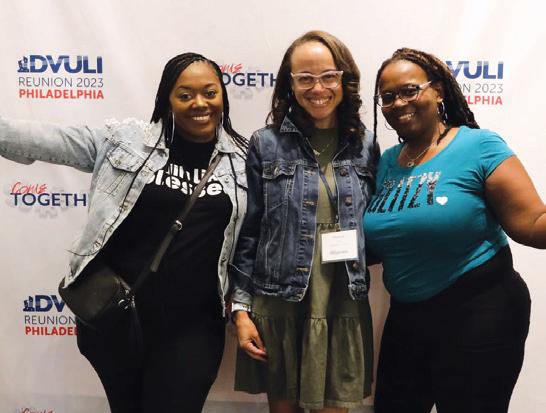
relationships. Space also would be vital if I were to make inroads on the passion that had drawn me to join DVULI in the first place.
I began by addressing my health. I committed to seeing every specialist, no matter how long it took. Slowly, I found the right treatments, a new diet, and for the first time in years, I felt really good.
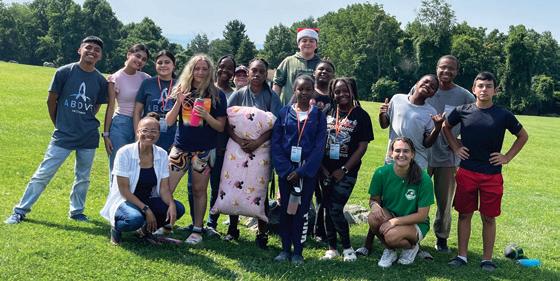
I SELF-IMPOSED A 24-HOUR PRAYER PAUSE WHENEVER PRESENTED WITH A NEW OPPORTUNITY, ASKING, “LORD, IS THIS SOMETHING YOU WANT ME TO DO?” I LEARNED TO SAY NO. I GRADUALLY CREATED HEALTHIER BOUNDARIES WITH MY CHURCH, EMPOWERING OTHERS AND FORCING MYSELF TO RELEASE DUTIES THAT WEREN’T MINE.
breakup and needed daily help caring for his three young boys. At the church, volunteers left unexpectedly, adding more to my plate.
Soon, my hard-fought boundaries eroded. Emergency calls and logistics replaced leisurely prayer walks. I reassumed old responsibilities and picked up unvetted new ones. Check-ins with my husband revealed what I already knew: I was near the edge again.
Desperate, I turned once more to Covey’s tools, asking his classic priorities questions: Is it urgent? Is it important? To my bewilderment, much of it was both.
Which things could I put down? Caring for my husband? Supporting my nephews? Being present for hurting teens in my ministry? None of it felt optional. Even my most fruitful outside ministry work felt too precious to let go. I couldn’t simply press pause, yet I recognized that I was running out of capacity. For the first time, Covey’s framework didn’t give me a clear answer.
Perhaps time management techniques—while vital—aren’t the right starting point. Dave proposed a new priority: “If we chase faithfulness, balance will come.”
Jesus’s call to enter His rest in Matthew 11:28–30 has been a mantra for much of our Sabbath work, but a paraphrase from The Message gave me direction for this season. “Walk with me and work with me—watch how I do it. Learn the unforced rhythms of grace.” This is my new pursuit. It’s not an idealized version of balance but grace—unforced, faithful grace—so it is well with my soul.
I added ministry boundaries, too. I self-imposed a 24-hour prayer pause whenever presented with a new opportunity, asking, “Lord, is this something you want me to do?” I learned to say no. I gradually created healthier boundaries with my church, empowering others and forcing myself to release duties that weren’t mine. I even invited my husband to hold me accountable with balance check-ins. While it may seem counterintuitive for time management, I pressed into spiritual habits to keep me centered in Christ. I surrendered my day to him during morning prayer walks.
Within the year, I’d implemented most of the strategies I’d developed to achieve balance, and for a brief season, I was the model student. I wish this article could end “and she lived a happily balanced life ever after,” but soon, almost without recognizing it, life threatened my carefully curated equilibrium.
My husband was diagnosed with liver cancer. Just as we began to face that battle, my brother went through a messy
I’ve tasted balance, and I believe it’s possible again. But when it’s elusive, I’m learning that grace is enough for today.
God, what are you asking me to be faithful to today?
EBONIE
DAVIS (Washington DC 2022)
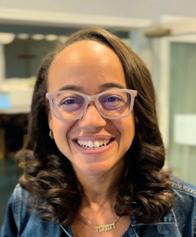
Ebonie is a seasoned youth pastor serving in a Maryland church near Washington DC. She also researches, writes, and speaks on faith-related topics, with a focus on helping teens develop resilient faith. Ebonie holds an MA in Student Ministry Leadership from Huntington University.
PERSPECTIVE Partner's

THE Unlikely DISCIPLE
By Brian Dye, Executive Director, Legacy Disciple

HaveDVULI is grateful to partner with the Legacy Disciple organization. In the effort to expand Legacy’s influence, message, and reach, this contribution on discipleship is for the inspiration of the DVULI alumni and urban leadership community. Enjoy!
you ever considered the men Christ chose to lead His global movement? When we think of the individuals we would have chosen to lead a global movement, they probably would be those with great wealth, education, and leadership skills. These are the people who lead large corporations and have the potential to change the world, right? Let’s look at a few of the 12 men Jesus chose from Galilee.
Peter was often rash in his statements and actions. Jesus gave him the name Peter, not because he was a rock at that moment, but because Jesus would make him into a rock. Jesus saw beyond who he was and treated him according to what he would become.
James and John had power issues. They got their mom to ask Jesus if they could sit on His right and left in heaven (Matt. 20:20–28). They were, in fact, making the claim that they were definitely more worthy of those seats of
IN JUST THREE YEARS, THE MASTER DEVELOPS A HANDFUL OF UNLIKELY MEN WHO WOULD CHANGE THE WORLD.
prominence than the other 10 disciples. But beyond that, they were claiming to be more worthy than their fathers Abraham, Isaac, Jacob, Joseph, David, and countless others throughout the centuries. They wanted to call down fire from
heaven on the Samaritans who didn’t receive the gospel message (Luke 9:51–56), as though they themselves weren’t slow to comprehend. Jesus would make them into martyrs.
Simon was a zealot. He hated the Roman government so badly that he made a vow to kill any Roman or Jew who cooperated with Rome and got close enough to him (like Matthew the tax collector). He was a hit man, a modern-day terrorist. Jesus turns his zeal toward the kingdom.
How does Jesus change these men? Note that Christ shapes the character of the men from Galilee without ever changing the culture of the men from Galilee. Remember, it was Peter’s speech that gave him away in the courtyard while he tried to deny being one of Christ’s disciples (Matt. 26:73). After Christ’s death and resurrection, they were still known as uneducated, common men (Acts 4:13). Through these unlikely disciples, Christianity would grow into a major movement of the Roman Empire that would spread to the surrounding continents. In just three years, the Master develops a handful of unlikely men who would change the world.
There was nothing special, in the mind of the average Jew, about Galilee. Yet, this is where Jesus selects his disciples (John 1:43) and carries on the vast majority of His ministry (Matt. 4:23).
While Jesus was born in Bethlehem of Judea, He was not reared in Judea. While the religious sacrifices and temple service were in Jerusalem of Judea, Jesus chose not to grow into a man there. Rather, Jesus decided to associate Himself with lowly Galilee, and it was there that He selected the leadership for His church.
This gives me hope. God can raise leaders for His church from neighborhoods where nothing good is expected to come from. Maybe the neighborhood you grew up in wasn’t supposed to produce anything meaningful. It was filled with crime and poverty. Yet this is the kind of place where God searches for leaders. How many leaders are being passed by because we look on the wrong side of the tracks? How many of us don’t feel we are able to lead because we were born on the wrong side of the tracks?
I can imagine how the disciples felt when Jesus called them. They, like me, came from a community in which no one was expected to do anything mighty. No one looking for leaders would look for them there.
Not only did He, a rabbi, call them to follow Him, but He promised to make them fishers of men (Matt. 4:19). No rabbi ever paid them attention before. Most assuredly, no rabbi would ever entrust them with a mission. But Jesus knew it
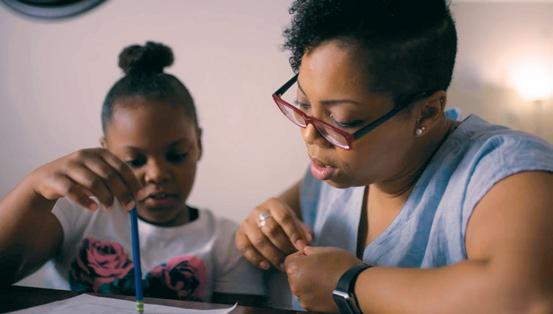
This gives me hope.
GOD CAN RAISE LEADERS FOR HIS CHURCH FROM NEIGHBORHOODS WHERE NOTHING GOOD IS EXPECTED TO COME FROM.
would not be their education or status that would change the world. They were uneducated, common men, but they had been with Jesus (Acts 4:13). And that’s what mattered.
There is hope. Our God is a God of redemption who loves to use the foolish things of the world to shame the wise. God wants to show His power, and He will not share His glory with any other. Find the powerless, and there you will find God at work. God doesn’t fight with the strongest because He has no need for the strength of another. He has all the strength He needs.
I have grown to understand that not only can God save a remnant from the urban community, but the urban community is the hope of the church in the twenty-first century. God has used the lowly things to shame the wise. Whenever God has moved, He has chosen to move via the unlikely. For it is the unlikely who know where their hope lies.
This is why Legacy Disciple exists—to create space for those the world has deemed unusable and to make disciples who become disciple-makers.
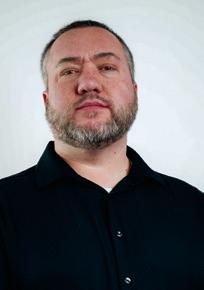
BRIAN DYE (Chicago 2007)
Brian is Executive Director of Legacy Disciple, the Director of Leadership for the Chicago Partnership, and a graduate of Cedarville University.


November 5-8, 2025



Michael Davis (Kansas City 2008) has launched The Cultured Store, a fresh apparel line.
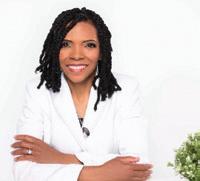
LaTasha Langerston (St. Louis 2018) recently co-authored with her daughter, Young Athletes Playbook for Mental Toughness.
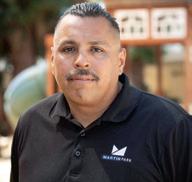
Oscar Rodriguez (Fresno 2023) received the Clara Barton Humanitarian Hero Award from the American Red Cross for his service to the residents of Martin Park.
Alumni updates
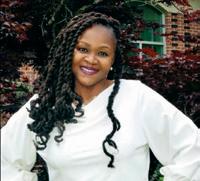
JoAnn Dean (Atlanta 2014) published her tenth book, Becoming a Successful Me: the Self-Care Workbook.
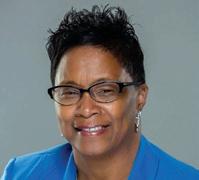
Kim Moore (Louisville 2022) made headlines for her collaboration with the city of Louisville’s Gang Violence Intervention Program.
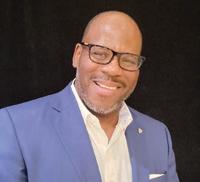
Michael Smith (Houston 2005) has published The 5A’s to Great Relationships.
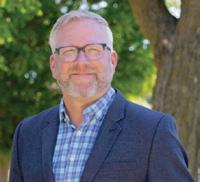
Steve Faber (Grand Rapids 2000) was elected to the Kent County Board of Commissioners 18th District seat in Michigan.
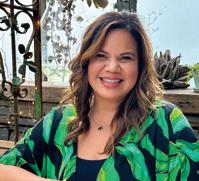
Wanda Novales (Philadelphia 2012) was honored as a Powerful Latinas Awards Honoree, recognized for over 20 years of experience in education and management.
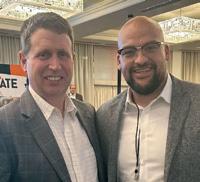
Aaron Story (Indianapolis 2024) was honored with the Elevate USA Golden Helmet Executive Director Award.
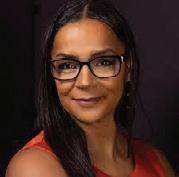
Nike Greene (Portland 2005) published Nike, More Than a Name—It’s My Life: A Memoir from Trauma to Triumph
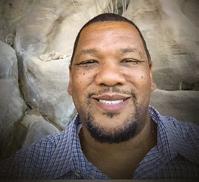
Rod Hines (LA 2003) was installed as reverend at Shepherd of the Valley Lutheran Church in West Hills, California, on December 7, 2024.
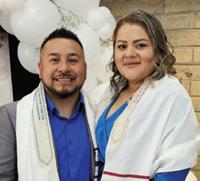
Cynthia Peña (Phoenix 2017) and her husband were recently installed as pastors at their church, Alpha & Omega.
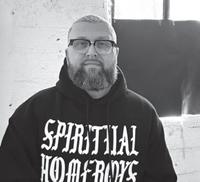
Johnny Walsh (San Diego 2023) recently released his single, “The Last Supper.”
Share your personal updates and career benchmarks with us: DVULI.ORG/YOURSTORIES
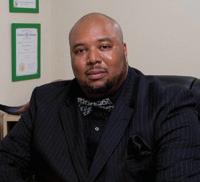
Clarence Presley-Brown (Seattle 2012) received his Doctor of Religion from Faith International University and Seminary.
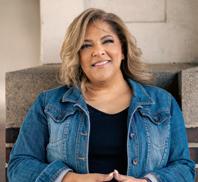
Amy Williams (Chicago 2007) published Worth Seeing, a roadmap for those committed to seeing and nurturing the potential in young people.

Follow Us



instagram.com/dvuli/ facebook.com/dvuli/ linkedin.com/company/dvuli/ YouTube.com/dvuli


